
There’s little doubt the United States is one of the most controversial countries in the world. Since World War II, its military, political, and cultural leadership have dominated the globe and shaped international institutions. This level of influence has created resentment not only among America’s enemies but also among some of its friends. Of course, governmental relations do not necessarily correspond to popular opinion within countries. People may also have a negative opinion of the United States government and foreign policy while liking American people and culture.
So, with these complexities in mind, what countries dislike the United States the most? We’re going to look at this question from two angles. First, based on Pew Research Center polling, we’ll identify some areas that tend to create resentment against the United States in foreign countries. Then, going region by region, we’ll take a deep dive into specific countries that dislike the United States the most due to conflicting foreign policy objectives.
Polling Our Friends
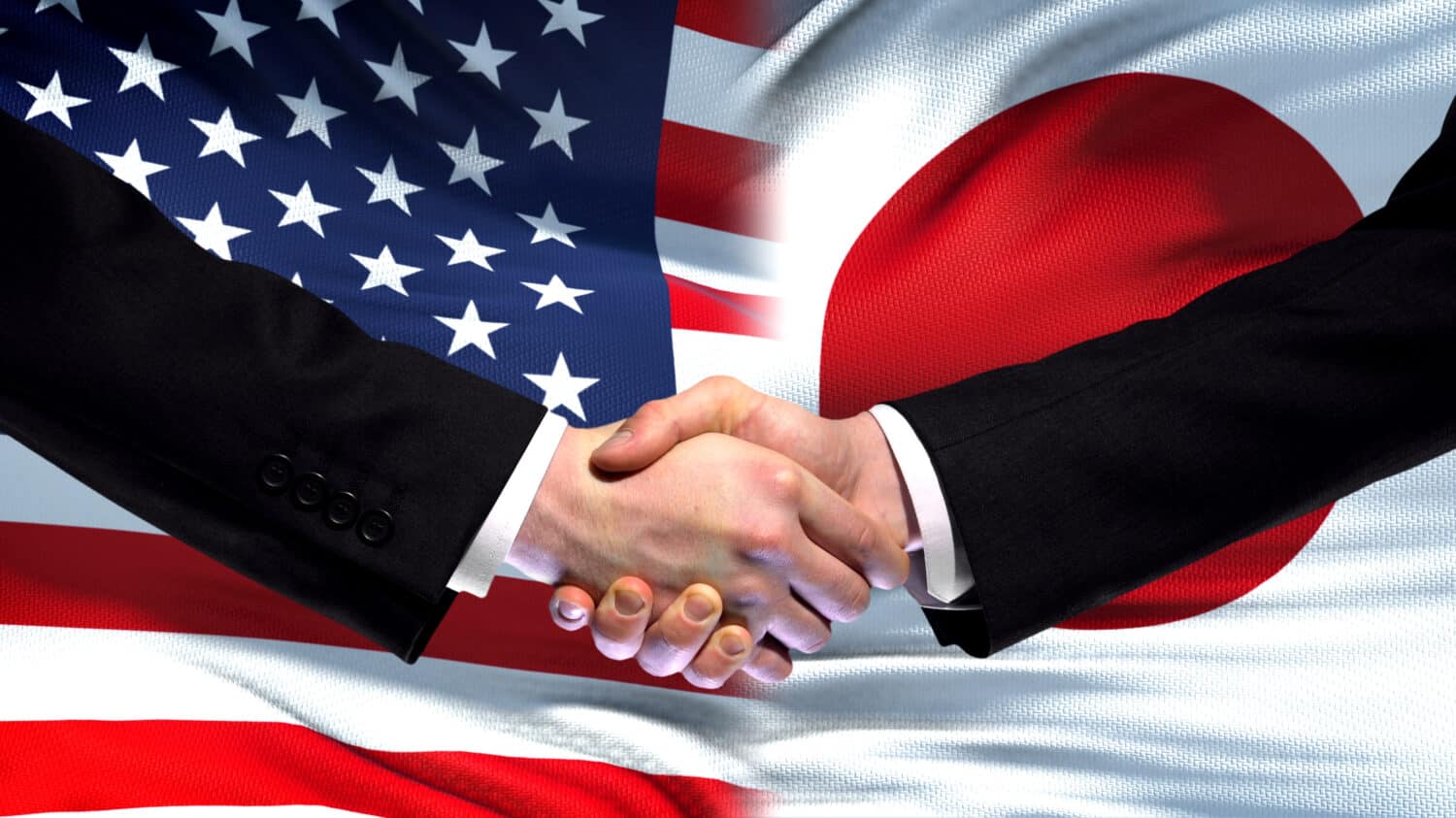
For the past two decades, the Pew Research Center has collected polling data from 23 countries worldwide to determine international opinions of the United States. Polling is difficult or impossible to accomplish in the closed societies that are the United States’ main rivals. This means that Pew’s data indicates mainly how American friends, like Canada, Spain, Japan, and Kenya, see us. However, this makes it all the more useful data to identify issues that are problematic enough to be felt both by American friends and enemies.
Why the Hate?
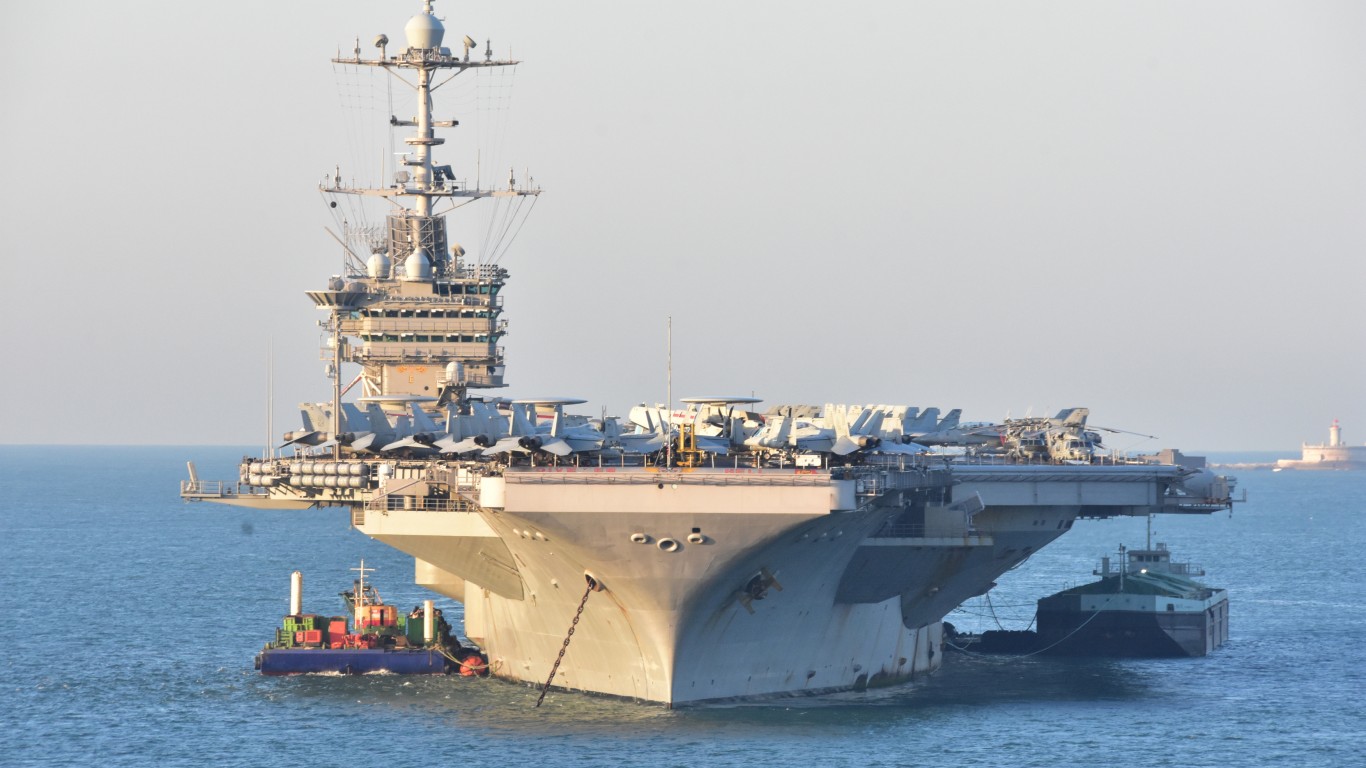
These are some of the main issues the Pew polls turned up:
- International opinion of the U.S. changes depending on the administration in control. For example, Mexican opinion of the U.S. has improved under the Biden administration while it has declined in Hungary.
- 50% of respondents said that the U.S. does not consider other countries’ interests in making its policies.
- 82% said that the United States interferes in other countries’ affairs a great deal or a fair amount.
- However, 61% said that the U.S. contributes to international peace and stability and only 30% had an overall unfavorable view of the United States.
Of course, American economic and cultural influence in a globalizing world also provoke resentment, but the perception of U.S. interference in other countries seems to be a key issue. That will be the focus of our summary of the countries that dislike the United States the most.
European Countries that Dislike the U.S.
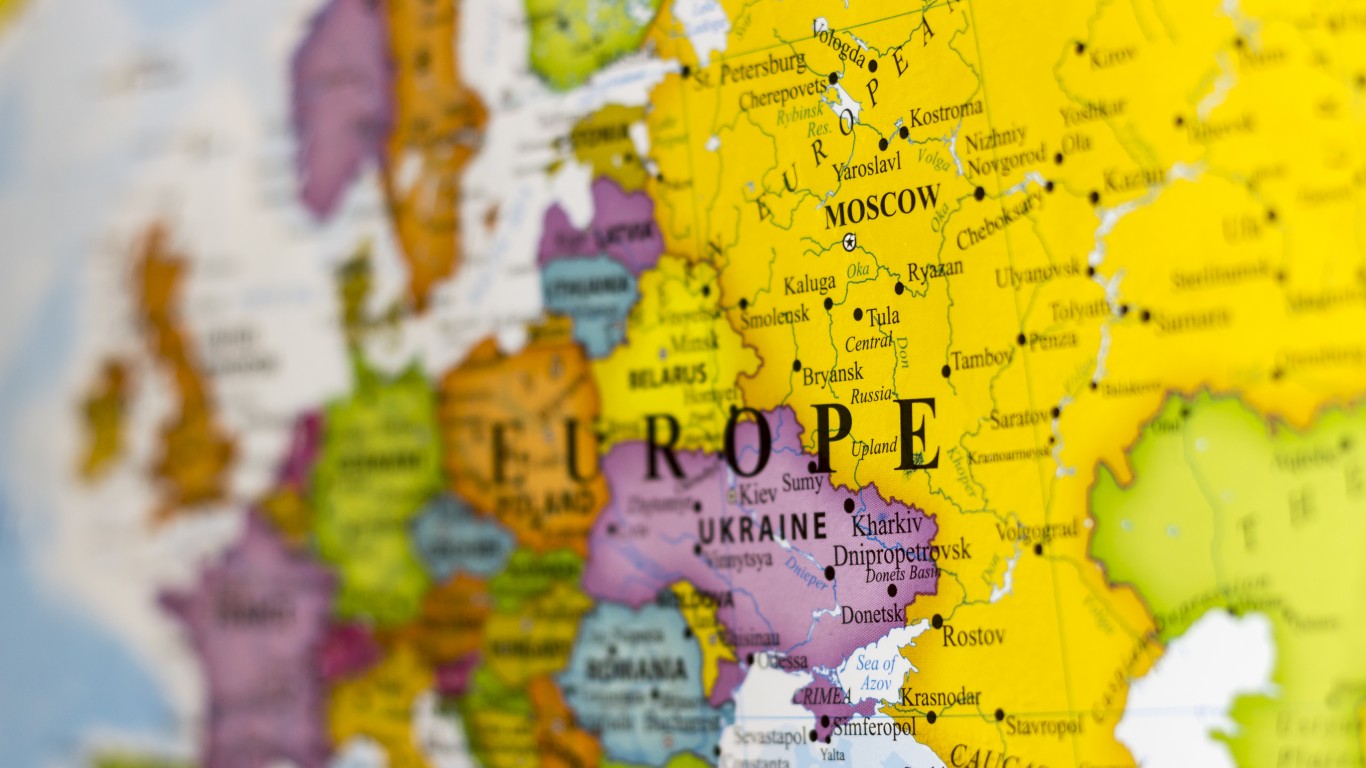
For the past 80 years, American foreign policy in Europe has focused on containing Russia’s expansionist ambitions. The collapse of the Soviet Union inspired overly optimistic ideas of a new era of East-West partnership. However, it left a power vacuum in Eastern Europe that both sides have moved to fill. With all of the former Soviet allies in Eastern Europe now firmly entrenched in NATO, the competition has moved further east into the former Soviet republics—particularly Ukraine.
Russia

Russian leaders Gorbachev and Yeltsin pursued cooperation with the West, which led to international investment and cooperation on a range of issues. Vladimir Putin, however, has set his sights on restoring the former glory of the Soviet Union, particularly by engaging in an invasion of Ukraine that started in 2014 and accelerated dramatically in 2022. The United States and its allies have imposed crippling economic sanctions and provided funding, training, and equipment for the Ukrainian resistance. Due to their radically opposed agendas, Russia is one of the countries that most dislikes the United States.
Belarus

A close ally of Russia, Belarus has come under U.S. criticism for human rights violations, fraudulent elections, and allowing Russia to use its territory as a staging point for its aggression against Ukraine. Because Belarus borders NATO countries Poland, Lithuania, and Latvia, the United States sees it as a strategic challenge for regional security. For its part, the Belarussian leadership knows it is surrounded by superior firepower and will be on the front lines of any future direct conflict between the United States and Russia. Thus, it sees the U.S. as its most dangerous enemy.
Asian Countries that Dislike the U.S.
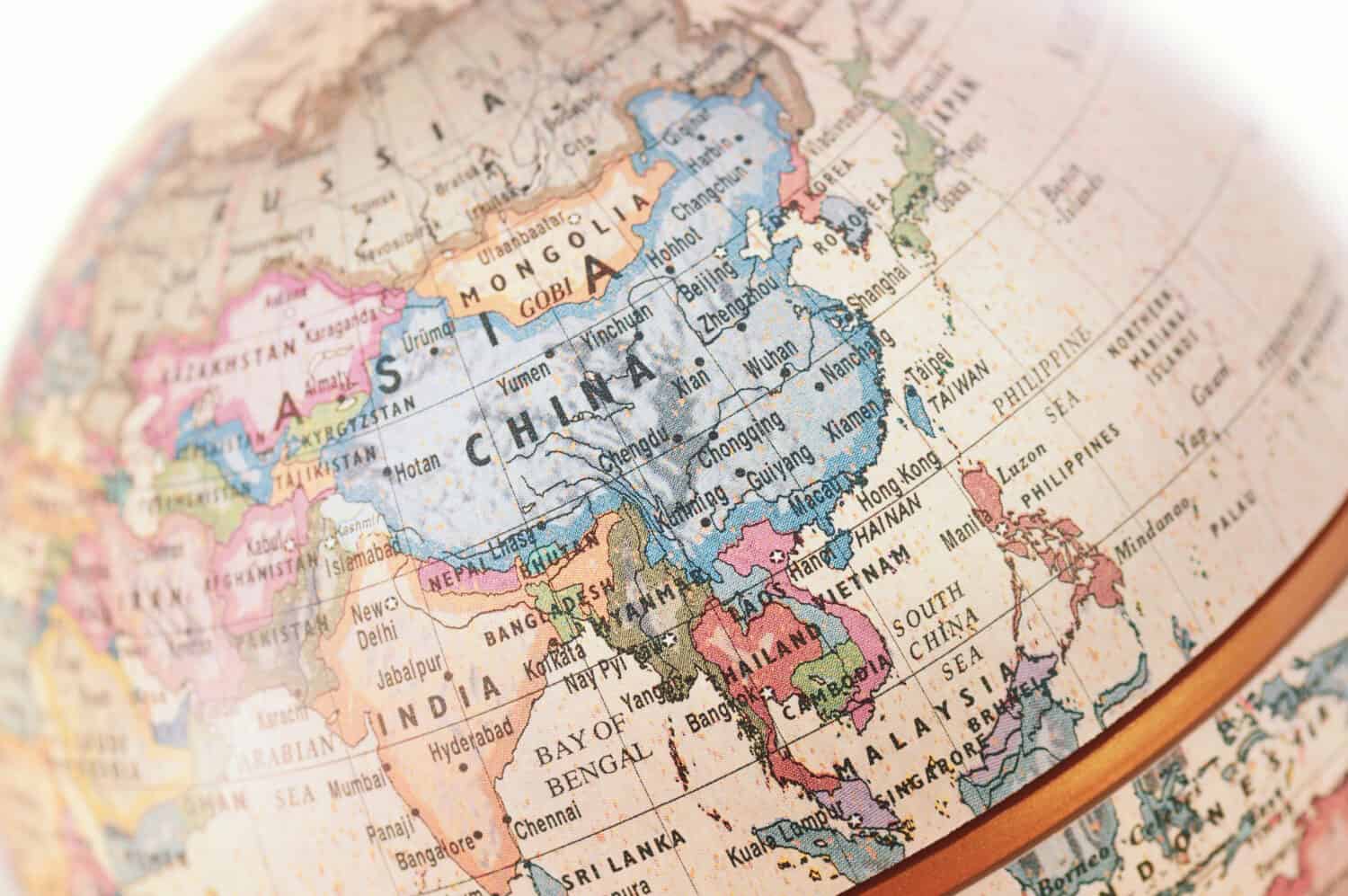
The defeat of Japan in World War left the Pacific Ocean temporarily an American lake. The spread of communism to China, North Korea, and Indochina turned it into an arena of Cold War conflict. Today, a major American foreign policy objective in the region is to contain the more aggressive aspects of China’s rise to the status of a global power.
China

Unlike other communist countries that have clung to untenable economic policies, China made the pragmatic decision to introduce market reforms to make it competitive while retaining strict one-party control of the government. Today, it seeks to parlay its wealth and technology into military, economic, and diplomatic influence. One way it does this is through massive infrastructure investments in developing countries in areas with strategic resources. China is using its growing military power to throw its weight around in the region. It has pressed claims to virtually the entire South China Sea against weaker neighbors and has made no secret of its intentions to regain control of the island of Taiwan, by force if necessary. As the only country strong enough to counter Chinese ambitions, the United States is certainly a country China doesn’t like.
North Korea
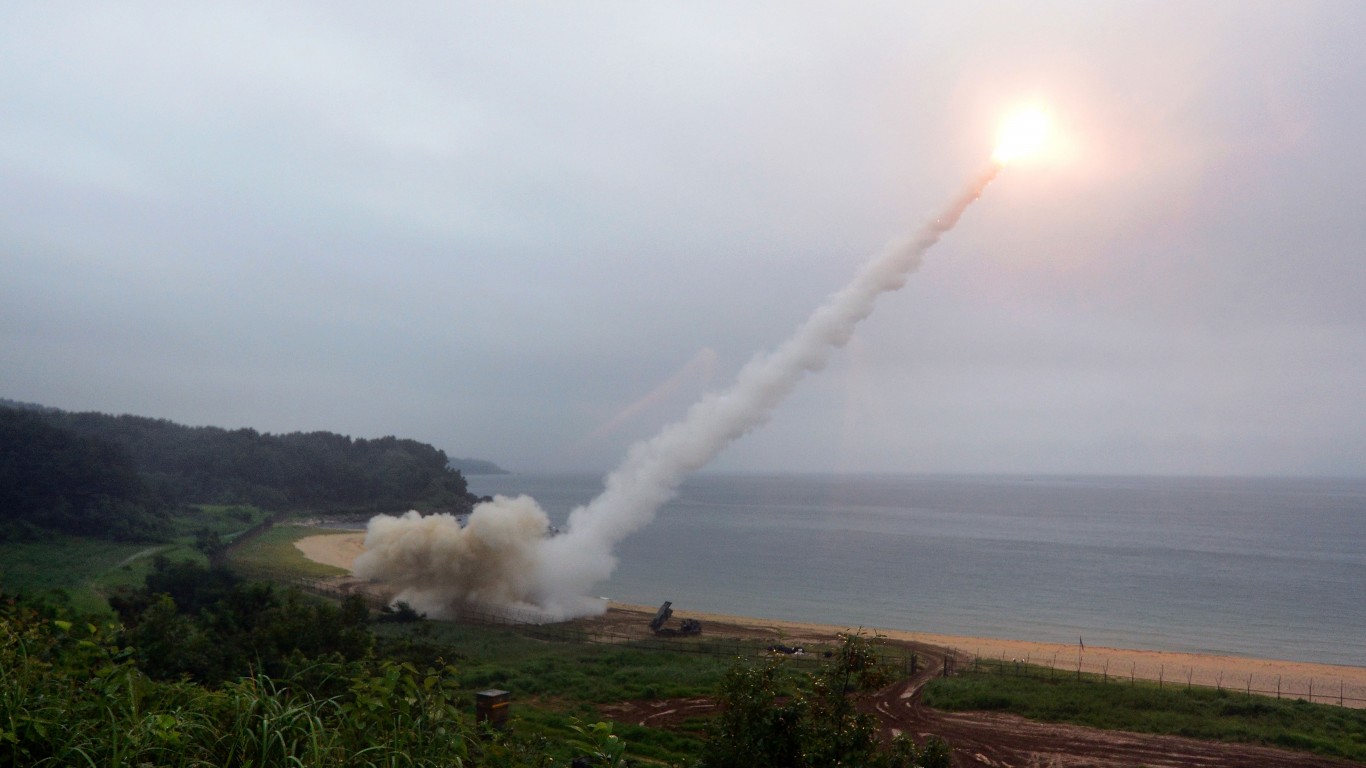
At the end of World War II, the Korean Peninsula was divided into the communist Democratic People’s Republic of Korea in the north, and the western-aligned Republic of Korea in the south. The North Korean leadership made the disastrous decision to invade the south in 1950, provoking a devastating U.S.-led military response that largely destroyed the country but returned the situation to a stalemated status quo. The conflict remains unresolved to this day, but in the meantime, North Korea has built one of the most powerful military machines in the world, complete with nuclear weapons and ICBMs that may be able to reach the North American mainland. Needless to say, North Korea is no fan of the United States.
Middle Eastern Countries that Dislike the U.S.
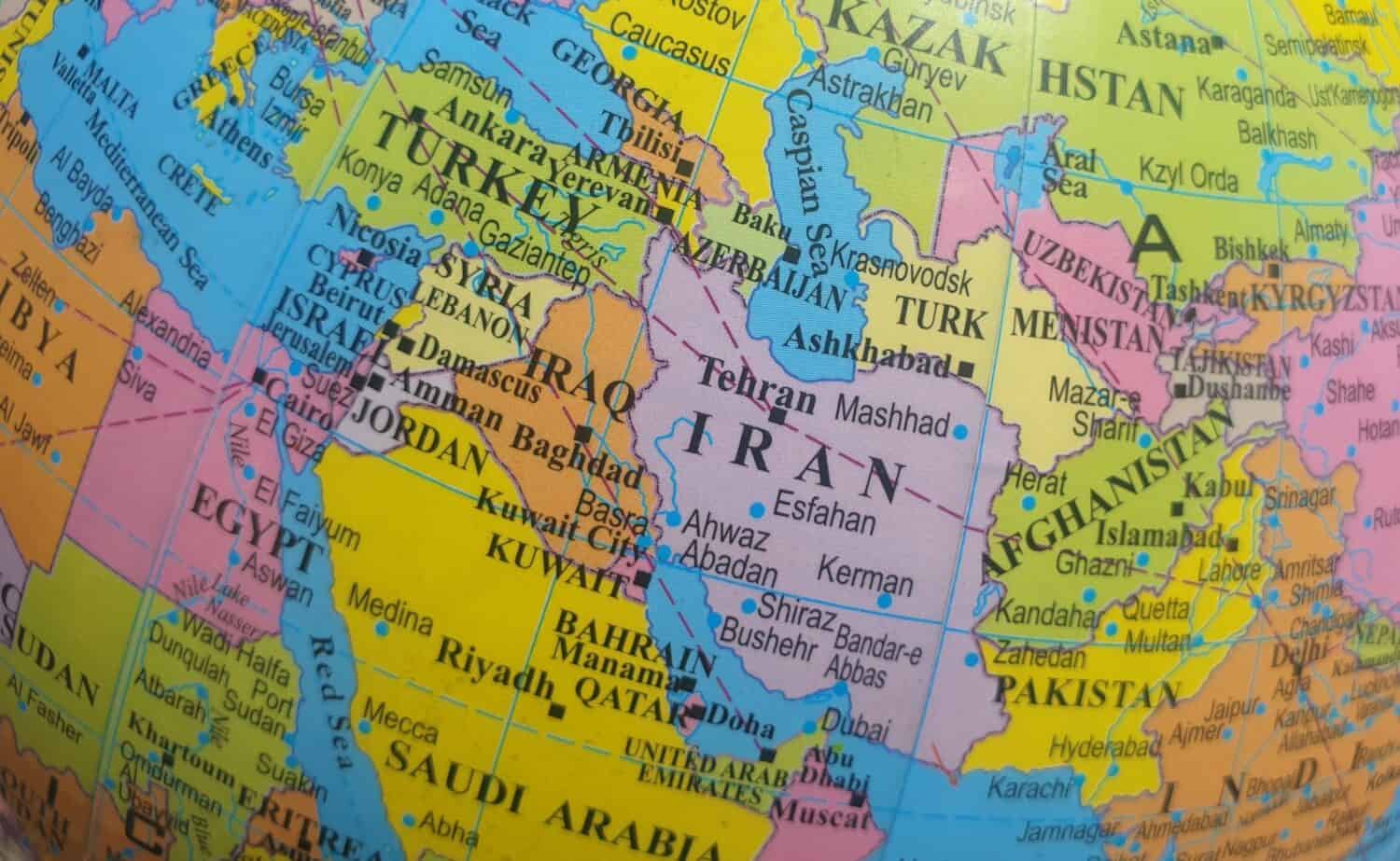
Two of the main drivers of American foreign policy in the Middle East are oil and the status of the state of Israel. Israel has been in a state of conflict with its neighbors for as long as it has been a nation. The United States has been its major sponsor, sending some $3.3 billion annually in foreign aid and military support—more than to any other country except Ukraine. In the 1940s, the economic exploitation of an ocean of oil in the Persian Gulf inaugurated a dramatic increase in the power and influence of the Arab world. Confrontations with Iran and Iraq over the past half-century have largely been driven by the priority of keeping the oil spigots on for Western industry and consumers.
Iran
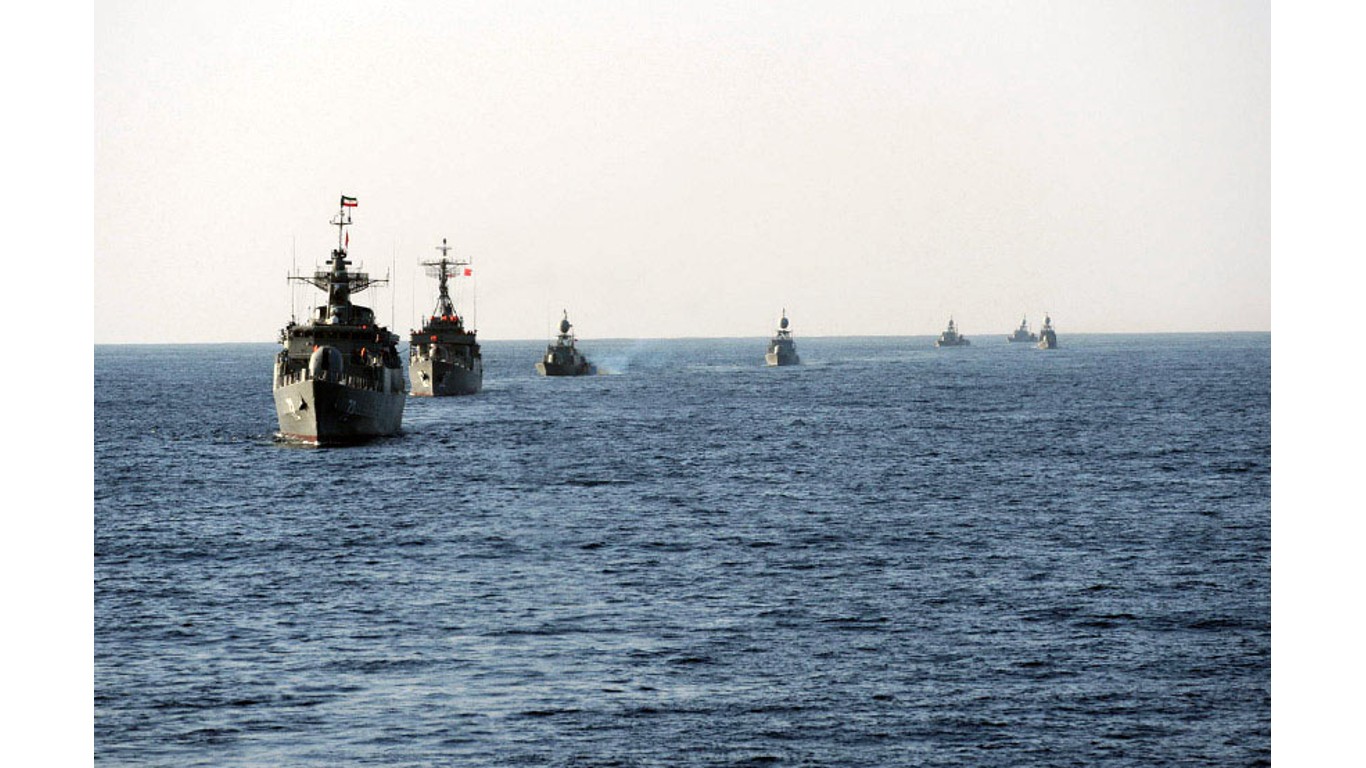
In 1979, Iran reversed course from being a staunch U.S. ally to an implacable enemy when religious clerics spearheaded the overthrow of the country’s monarchy. Militants held the U.S. embassy staff hostage for 444 days, guaranteeing that the American government and people would see Iran as a hostile power for years to come. The two countries have come close to war on numerous occasions, particularly in response to Iranian sponsorship of terrorism, harassment of international shipping through the Strait of Hormuz and the Persian Gulf, and pursuit of nuclear technology. The U.S. maintains a sizeable military presence in Qatar to deter Iranian aggression. If Iran reaches the point of testing a nuclear weapon, there is a real danger of armed conflict with the United States, Israel, and the Persian Gulf states that are aligned with the West.
Afghanistan
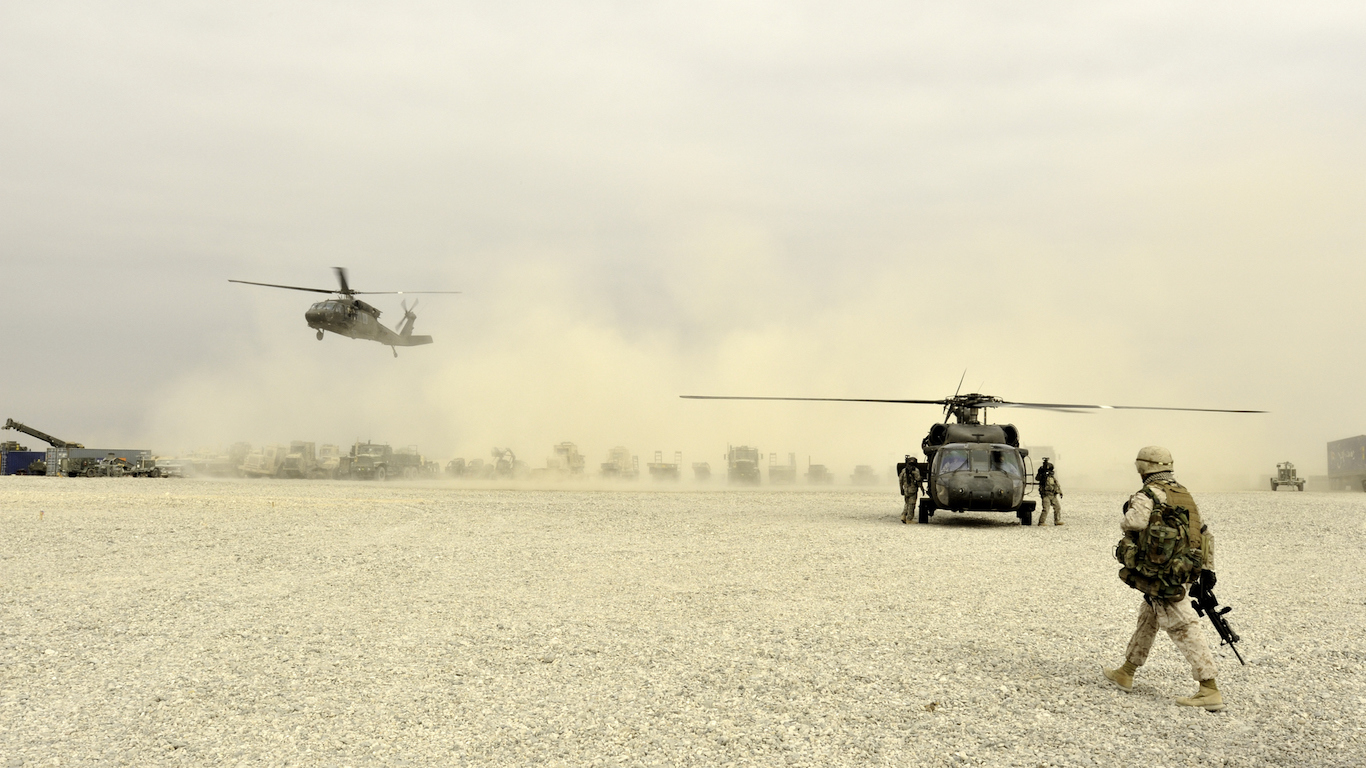
The devastating terrorist attacks in New York City and Washington D.C. on September 11, 2001, traumatized the American people and left them demanding revenge. When an investigation identified Osama bin Laden as the mastermind, the United States began mobilizing for war against the Taliban regime in Afghanistan, which was sheltering him. 20 years later, American forces were abruptly withdrawn, leading to the near-immediate collapse of a pro-Western government and the Taliban’s return to power. With the scars of war still fresh, Afghanistan considers the United States its primary foe.
Syria
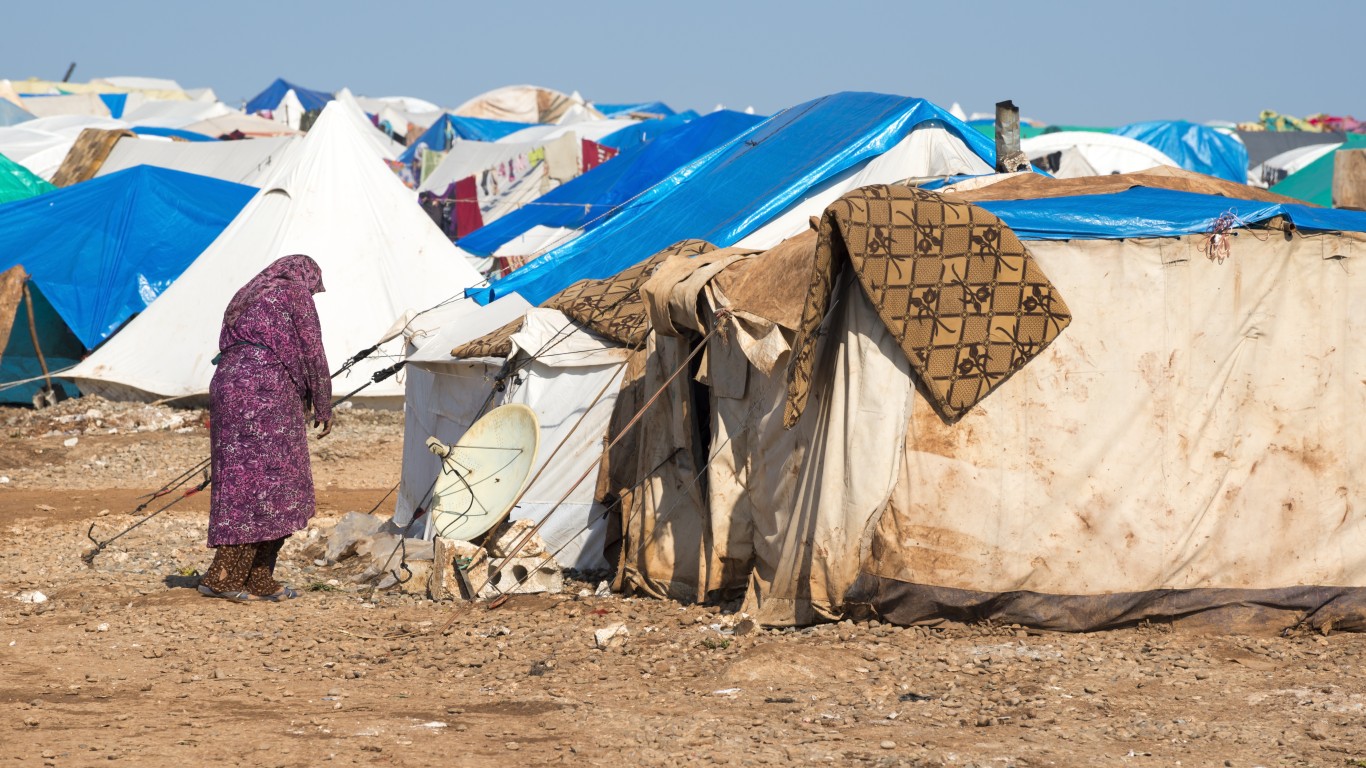
With neighboring Israel aligned with the United States, Syria sought out the Soviet Union as its sponsor during the Cold War. This relationship has largely continued, with Russia still maintaining a naval base and military presence in the country. The United States has long criticized Syria for its poor human rights record, use of chemical weapons against its own people, and for allowing the movement of terrorists and Iranian materiel through its territory to support terrorist organizations in Lebanon. When a multi-faction civil war broke out in 2011, the Americans and Russians supported opposite sides, with further complications from Iranian, Turkish, and Israeli interventions. In this still-unsettled situation, Syria sees the United States as its most implacable enemy.
Latin American Countries that Dislike the U.S.
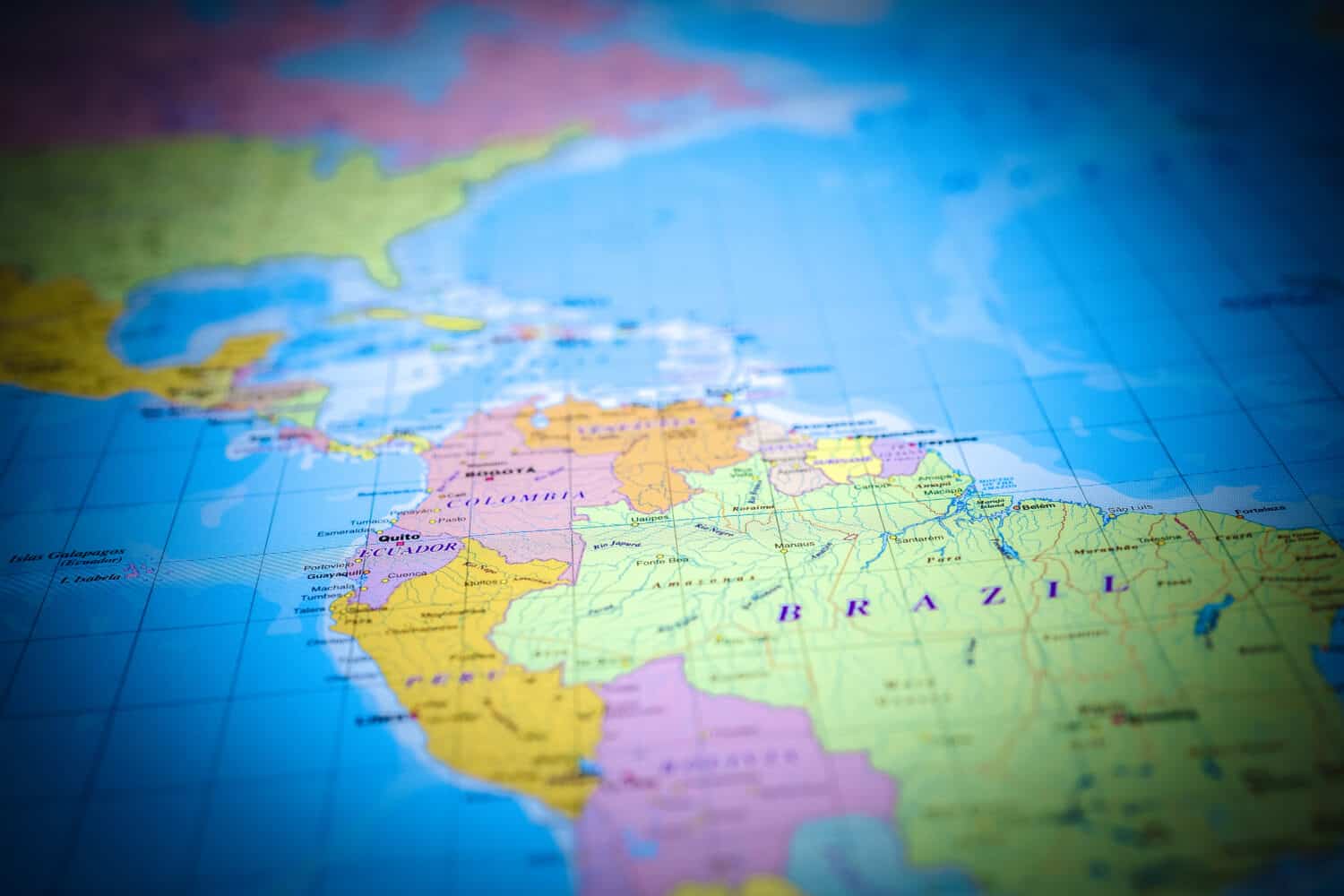
U.S. history has included multiple military interventions in Latin America, including the Mexican War, the Spanish-American War, past occupations of Haiti and the Dominican Republic, and, in more recent history, invasions of Grenada and Panama. These conflicts have had complex motivations, from territorial conquest and promoting business interests to excluding colonial powers and communist influence from the region to combatting the drug trade. While the United States has many friends in the region, this troubled history overshadows American diplomatic relations with Latin countries.
Cuba

Cuba gained its independence from Spain in 1898 with American assistance, but Cuba had no illusions that this was a generous act of altruism. The United States took the opportunity to seize Puerto Rico, the Philippines, and Guam from Spain as spoils of war, as well as retaining control of Guantanamo Bay, Cuba, as a naval base. A few years after a communist government under Fidel Castro took control in 1959, the United States and the Soviet Union very nearly went to war during the Cuban Missile Crisis. Cuba further provoked American ire by supporting leftist insurgency movements in Latin America and Africa. Today, Cuba remains a one-party Communist state that strictly suppresses political opposition, and therefore remains under a withering American trade embargo. Continued American control of Guantanamo Bay and its use as an offshore detention facility for prisoners from American anti-terrorism campaigns is a significant ongoing point of tension.
Venezuela

In 1999, leftist politician Hugo Chávez became the president of Venezuela. Over a 14-year regime, his policies crashed the country’s once-prosperous economy, suppressed his political opposition, and led to the mass exodus of over 7.3 million Venezuelans just since 2014. His successor, Nicolás Maduro, took office after an election broadly considered rigged, triggering social unrest. Reportedly, U.S. President Donald Trump briefly considered the idea of invading Venezuela to remove him from power. So, both countries feel like they have plenty of reasons not to like one another very much these days.
African Countries that Dislike the U.S.
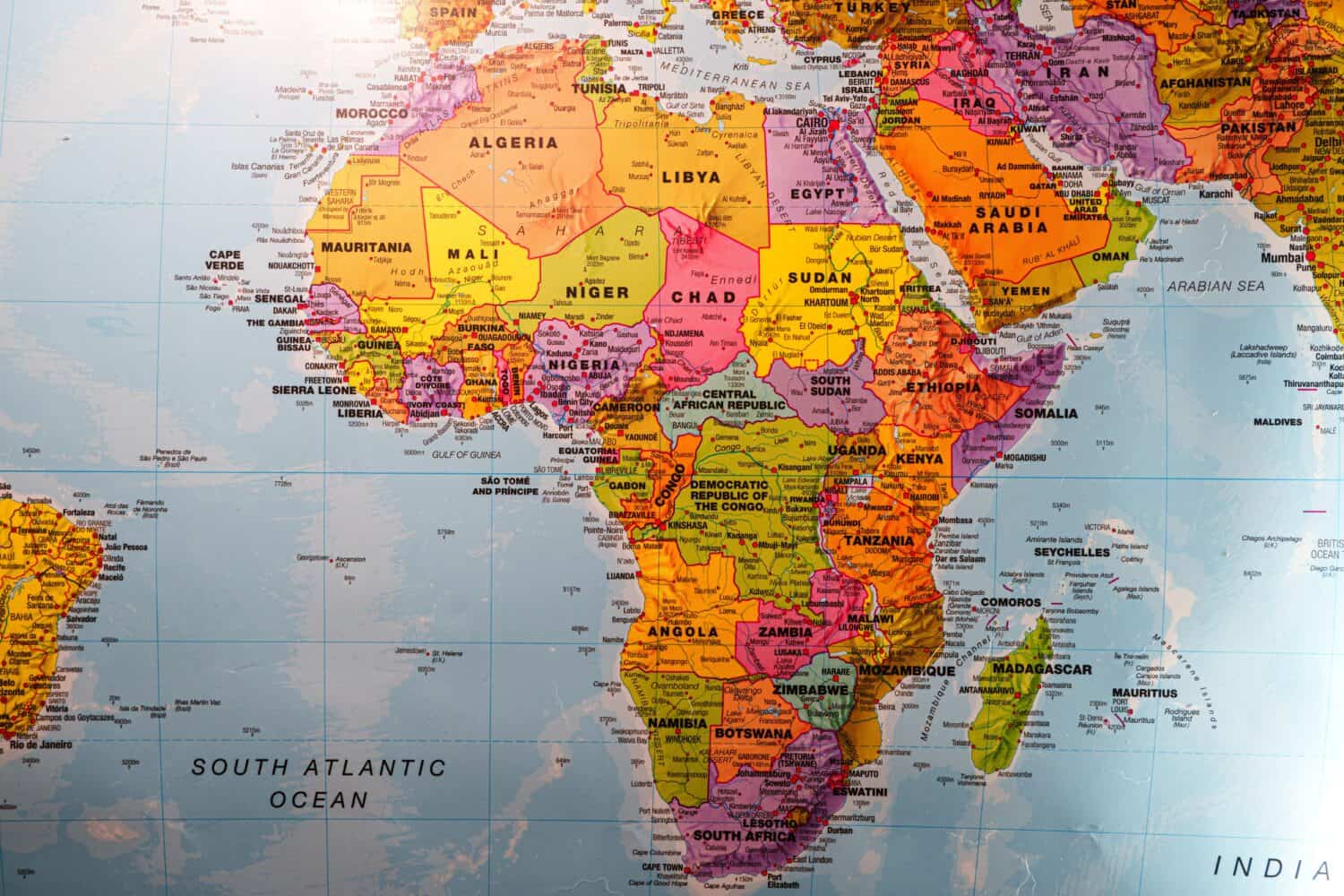
As a whole, Africa is one of the most pro-American regions of the world; particularly sub-Saharan Africa. A 2014 study pointed out several factors that have contributed to this attitude. The election of Barak Obama, of mixed Kenyan ancestry, as U.S. President had a tremendous impact. The population of Africa is youthful, and this demographic worldwide has tended to admire American culture. This greatly increases American soft power on the continent. And Africans often admire the American domestic model and capitalist economic system. We can also add to this the fact that the United States has largely taken a “hands-off” approach to Africa, leaving it to France and Britain to manage affairs in their former colonies.
Egypt

Once aligned with the Soviet Union, Egypt signed a U.S.-brokered peace agreement with Israel in 1979 and became a major American recipient of military and development aid. Due to its strategic location, the U.S. has been keen to preserve Egypt’s stability, even at the cost of supporting repressive leadership. Over 80% of the Egyptian people had an unfavorable view of the United States after its perceived interference in the removal of Hosni Mubarak and the election of the Muslim Brotherhood, a group accused of terrorism, to leadership. Concerns about human rights violations under current President Abdel Fattah el-Sisi have led the United States in 2023 to redirect some aid from Egypt to Taiwan. While Egypt and the United States cooperate at the governmental level, it is pretty clear that the Egyptian population holds a fairly dim view of the United States these days.
It’s Your Money, Your Future—Own It (sponsor)
Retirement can be daunting, but it doesn’t need to be.
Imagine having an expert in your corner to help you with your financial goals. Someone to help you determine if you’re ahead, behind, or right on track. With SmartAsset, that’s not just a dream—it’s reality. This free tool connects you with pre-screened financial advisors who work in your best interests. It’s quick, it’s easy, so take the leap today and start planning smarter!
Don’t waste another minute; get started right here and help your retirement dreams become a retirement reality.
Thank you for reading! Have some feedback for us?
Contact the 24/7 Wall St. editorial team.
